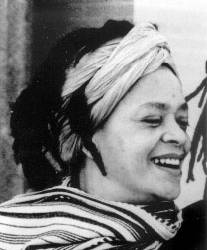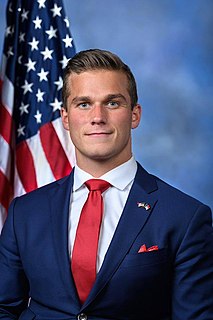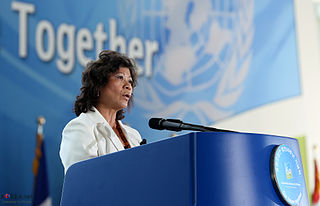A Quote by Albert Einstein
There are two ways of resisting war: the legal way and the revolutionary way. The legal way involves the offer of alternatinve service not as a privilege for a few but as a right for all. The revolutionary view involves an uncompromising resistance, with a view to breaking the power of militarism in time of peace or the resources of the state in time of war.
Related Quotes
I don't think there's any way that war can have a place in peace. I think that peace is the active and difficult resistance to the temptation of war; it is the prerogative and the obligation of the injured. Peace is something that has to be vigilantly maintained; it is a vigilance, and it involves temptation, and it does not mean we as human beings are not aggressive. This is a mistaken way of understanding non-violence.
Revolutionary war is an antitoxin that not only eliminates the enemy's poison but also purges us of our own filth. Every just, revolutionary war is endowed with tremendous power and can transform many things or clear the way for their transformation. The Sino-Japanese war will transform both China and Japan; provided China perseveres in the War of Resistance and in the united front, the old Japan will surely be transformed into a new Japan and the old China into a new China, and people and everything else in both China and Japan will be transformed during and after the war.
My own view of this, by the way, is, if the war on terrorism is successful over time, in its own way it's going to box Saddam in in a way that's going to make it much more difficult for him to maintain his power, and that he's going to become increasingly isolated. I think that's going to take time.
We have to build movements in the face of trade retaliation on the basis of people's democratic rights, on the basis of an ancient heritage of collective innovation. We work from the grassroots all the way to the national government and the World Trade Organization. It basically means being very multidimensional in our campaigns. And that is where part of the fun is. It involves both resistance and creativity. It involves constructive action, while at the same time saying "no."
So a war begins. Into a peace-time life, comes an announcement, a threat. A bomb drops somewhere, potential traitors are whisked off quietly to prison. And for some time, days, months, a year perhaps, life has a peace-time quality, into which war-like events intrude. But when a war has been going on for a long time, life is all war, every event has the quality of war, nothing of peace remains.
'Power breaking,' also called Hanmadang - which means something like celebration or festival in Korean - involves breaking large amounts of wood, concrete, granite, and the like with specific hand and foot techniques. Practitioners rely on repeated resistance training and the idea that, over time, the body can adapt to stress.
Revolutionary politics, revolutionary art, and oh, the revolutionary mind, is the dullest thing on earth. When we open a revolutionary review, or read a revolutionary speech, we yawn our heads off. It is true, there is nothing else. Everything is correctly, monotonously, dishearteningly revolutionary. What a stupid word! What a stale fuss!
Peace is the absence of war, but beyond that peace is a commodity unlike any other. Peace is security. Peace is a mindset. Peace is a way of living. Peace is the capacity to transcend past hurts - to break cycles of violence and forge new pathways that say, I would like to make sure we live as a community where there is justice, security, and development for all members. At the end of the day, peace is an investment; it is something you create by investing in a way of life and monitoring where your resources go.
Many think it not only inevitable but entirely proper that liberty give way to security in times of national crisis--that, at the extremes of military exigency, inter arma silent leges. Whatever the general merits of the view that war silences law or modulates its voice, that view has no place in the interpretation and application of a Constitution designed precisely to confront war and, in a manner that accords with democratic principles, to accommodate it.





































